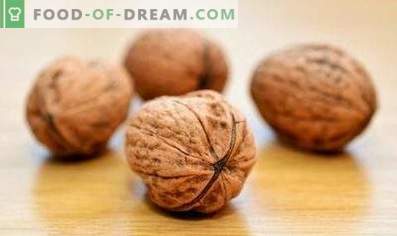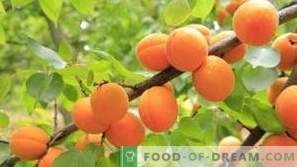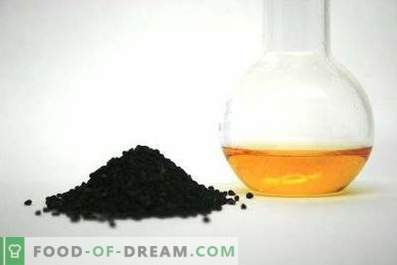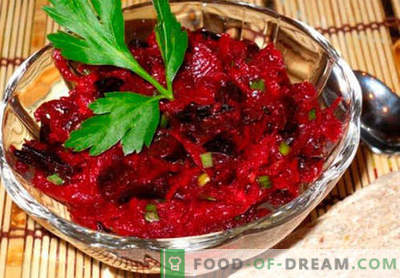
A walnut (Voloshsky, Greek, royal) walnut is a large tree belonging to the Walnut family. The homeland of the plant is Mesopotamia (modern Iraq) and Persia (Iran). It is proved that in the territory of Central and Asia Minor, walnuts were cultivated in the 6th century BC.
Today, the plant can be found in the Caucasus, the Balkans, India, China, Greece, Iran and Ukraine, in Asia Minor and North America. The world production of walnuts exceeds 2,200 thousand tons. The largest suppliers of the fruits of this plant to the international market are China, the United States and Turkey.
Walnuts are eaten raw, used for cooking first courses, meats, appetizers, salads, sauces and desserts. Folk healers prepare medicines from nut kernels and partitions that effectively cope with local and systemic disorders in the body.
Botanical description of walnut
Walnut - a tree with a thick trunk, reaching 26 meters in height. The branches of the plant form a spreading crown with a diameter of up to 21 meters. Complex pinnate leaves of a walnut consist of 2-5 pairs of green leaflets of oblong-ovate form. Leaf blades reach 75 mm in length and 45 mm in width.
Flowering hair nut in May small flowers of pale green color. The fruits of the plant are relatively large, light brown nuts having a spherical or ovoid shape. Each nut is covered with a dense green skin. In the first half of autumn, the peel dries, cracks and spontaneously separates from the fruit.
Inside each nut there is an edible core of irregular shape, dotted with winding deep grooves and divided into fractions by thin solid partitions. The taste, color, size and chemical composition of the fruit depend on the plant variety and on the conditions in which it grows.
Nutritional value of walnuts
Walnut is a fruit with high nutritional value. 100 g of the edible part of the product contains:
- 16, 184 g of proteins;
- 60, 722 g of fat;
- 11, 093 g of carbohydrates;
- 6, 087 g of fiber;
- 3, 701 g of water;
- 1, 994 g of ash;
- 7, 177 g of dextrins, starch;
- 3, 893 g of sugars (monosaccharides, disaccharides);
- 7, 015 g of omega-3 fatty acids;
- 33, 204 g of omega-6 fatty acids.
Walnuts are a rich source of essential amino acids. Having eaten only 100 g of peeled nut kernels, it is possible to ensure the ingestion in the body of 0, 306 g of methionine, 2, 287 g of arginine, 1, 226 g of leucine, 0, 963 g of valine, 0, 583 g of threonine, 0, 763 isoleucine, 0, 403 g of histidine, 0, 176 g of tryptophan, 0, 437 g of lysine and 0, 769 g of phenylalanine.
Vitamins in walnuts
Fruits are rich in vitamins. 100 g of their nuclei contains:
- Riboflavin (B2) - 0, 118 mg;
- beta-carotene - 0, 047 mg;
- ascorbic acid (C) - 5, 723 mg;
- pyridoxine (B6) - 0, 711 mg;
- retinol equivalent (A) - 7,662 mcg;
- niacin equivalent (PP) - 4, 722 mg;
- folic acid (B9) - 76, 194 μg;
- tocopherol equivalent (E) - 2, 599 mg;
- thiamine (B1) - 0, 384 mg;
- pantothenate (B5) - 0, 816 mg.
In addition, quite rare vitamin K is present in walnuts - phylloquinone. The concentration of this compound is 2, 677 μg per 100 g of the edible part of the product.
Calories of walnuts
The energy value of walnuts is 655, 748 kcal per 100 g. The caloric content of one fruit of medium size is 26, 229 kcal. The glass (200 ml) of peeled nut kernels contains 1114, 772 kcal.
The caloric content of the oil obtained from the kernels of the Volosh nut is 898, 712 kcal. In a teaspoon of this product contains 35, 948 kcal, in a tablespoon - 143, 794 kcal, and in a glass - 1617, 682 kcal.
Useful items in walnuts
Macro elements per 100 g of walnuts:
- chlorine - 24, 319 mg;
- potassium - 473, 812 mg;
- sulfur - 99, 011 mg;
- magnesium - 119, 843 mg;
- phosphorus - 331, 206 mg;
- sodium - 6, 722 mg;
- Calcium - 88, 704 mg.
Trace elements per 100 g of the Volosh kernels:
- selenium - 4, 877 mkg;
- iron - 1, 944 mg;
- cobalt - 7, 296 mkg;
- fluorine - 684, 332 mcg;
- manganese - 1, 856 mg;
- iodine - 3, 072 mcg;
- zinc - 2, 563 mg;
- copper - 529, 772 mkg.
How to choose and store walnuts?
When choosing walnuts, one should give preference to unpeeled fruits. On a nutshell there should not be cracks, a raid and spots. Fruits must be heavy enough: too little weight signals that they are over dried.
When buying peeled nuts, you need to choose a kernel with a light yellowish-brown skin. It is important to ensure that the product does not smell of rancid oil, is not covered with bloom or gossamer. Before eating, peeled kernels should be calcined in the oven for 2-3 minutes.
Walnuts are best kept in the refrigerator or in any darkened cool place. Peeled kernels should be packaged in a glass jar with a tight-fitting lid or paper bag. The shelf life of the product in this form is not more than six months. If desired, nuts can be frozen. In the freezer the product retains its nutritional and taste properties for 11-12 months.
The benefits of walnut kernels
- Walnut is rich in vegetable protein. People who have decided to abandon the consumption of meat, eggs and milk, can use this product as a source of proteins necessary for the normal functioning of the body.
- Walnuts contain a whole complex of compounds that lower the level of cholesterol in the blood, strengthen the heart muscle and the walls of blood vessels that regulate heartbeat and blood pressure. People who have the opportunity to eat every day 4-5 of the fruits of this plant, less likely to suffer from cardiac diseases.
- The nucleus of the walnut nut is a rich source of vitamins. Regular consumption of this product helps to avoid beriberi, improve body tone, strengthen the immune system.
- Walnuts contain phosphorus, potassium, calcium and other substances that increase bone strength and strengthen joints. It is noticed that people who eat 3-4 fruits of this plant per day are less likely to be diagnosed with diseases of the teeth and the musculoskeletal system.
- There are antioxidant compounds in walnuts that protect cells from free radicals. With regular use of this product reduces the risk of cancer, slows the aging of the body, improves the condition of the nails, skin and hair, fine wrinkles are smoothed.
- Vitamins of group B, potassium and other nutrients that enter the body when eating walnuts, prevent the occurrence of failures in the nervous system. Thanks to this product, the adverse effect of stress on the body is minimized, sleep becomes more peaceful, memory improves, and the efficiency of the brain increases.
- Iodine and other substances contained in the nuclei of the Volosh nut reduce the risk of developing thyroid diseases.
- Useful compounds that are rich in walnuts, help protect the body from the effects of radiation.
- Oil squeezed from walnuts has anti-inflammatory and wound-healing properties. Sterile wipes soaked in this product are applied to nonhealing wounds and burns.
- A small handful of walnuts (25-30 g) helps to improve the condition of people suffering from urolithiasis, diseases of the urinary and biliary system.
- Cobalt, zinc and iron, which walnuts are rich in, help normalize hemoglobin levels. People suffering from anemia, it is useful to eat every day for 5-6 fruits of this plant.
- Nut kernels contain a complex of compounds that accelerate metabolic processes in the body.
- Walnuts are a powerful natural aphrodisiac. Substances present in their composition, improve the composition of the ejaculate in men, increase the likelihood of conception, alleviate the condition of women in menopause, normalize the menstrual cycle.
- Nut kernel oil is an effective remedy for parasitic invasions. To achieve a therapeutic effect, it is sufficient to drink daily on the throat of this product on an empty stomach.
The benefits of walnut dividers
- Broth from partitions helps to reduce the concentration of sugar in the blood. It is necessary to boil 2 teaspoons of vegetable raw materials in a glass of boiling water, a little insist and strain. The resulting liquid should be taken by pharynx 1 time in 6 hours. The remedy prepared according to this recipe is also used for rinsing eyes with conjunctivitis.
- Tincture of Volosh walnut partitions can be used as a sedative. You should pour 2 tablespoons of raw materials into a glass of alcohol, insist the mixture in a dark place for 20-25 days and filter the resulting liquid well. Tincture taken 30 drops a day with warm water.
- A weak decoction of partitions is an effective remedy for diarrhea. It is easy to prepare it: just pour a tablespoon of raw material into a saucepan with 2 cups of boiling water and boil the mixture for 15 minutes. Chilled and filtered means take 0.5 cups every 4 hours.
Contraindications and harm to walnuts
- Walnuts and oil obtained by compressing their cores can provoke the development of allergic reactions. People suffering from food allergies, it is recommended to exclude from the diet of these products.
- Nutritionists advise to eat no more than 100 g of peeled nuts per day. Failure to comply with this requirement may result in spasm of cerebral vessels, severe migraines, inflammation of the tonsils and swelling of the nasopharyngeal tissues.
- Walnuts - an extremely high-calorie product that promotes weight gain. People suffering from obesity, it is not recommended to eat more than 10 fruits of the plant per day.
- Walnuts are contraindicated in cases of increased blood clotting.
- People suffering from eczema, psoriasis or neurodermatitis should minimize their consumption of walnuts. Abuse of this product may cause a recurrence of a dermatological disease.
- Fruits of the volosh nut can harm people who have previously been diagnosed with abnormalities in the pancreas and intestines.























